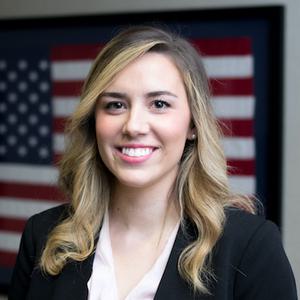
Health Care
Kaitlyn Finley | June 18, 2020
Medicaid expansion means higher taxes
Kaitlyn Finley
On June 30 Oklahoma voters will decide whether or not to increase medical welfare entitlements to able-bodied adults aged 19 to 64 who make less than 138 percent of the federal poverty level. If State Question 802 passes, this Medicaid-expansion provision would be added as a new article to the Oklahoma Constitution.
Oklahoma voters should know that more than a dozen other states that have taken the bait to expand Medicaid under Obamacare have been forced to raise state revenue or cut provider rates to pay for expansion.
According to a tally by Governing Magazine last year, 13 states have had to raise taxes, fees, or cut provider rates to fund their state portion of expansion costs. North Dakota cut payment rates to Medicaid providers. California passed a provider tax on hospitals and cigarette sales. Oregon put another tax on health insurance plans and hospitals. Other states like Kentucky and Arkansas have pursued charging premiums and implementing work requirements to make up for program shortfalls.
Although these states’ plans to tax hospitals to pay for expansion may seem like an additional financial drain on emergency care providers, in reality, many “nonprofit” hospitals have jumped at the chance to take on this financial “burden” because hospitals may increase their profits thanks to the tax.
State hospital associations in Kansas, Louisiana, and Tennessee have previously supported proposals for provider taxes to expand Medicaid. A 2016 report from Brian Blase with the Mercatus Center even noted that “…hospital and nursing home associations … worked with states on the [initial] design of provider taxes.”
In recent years, politicians on both sides of the aisle have criticized these taxes because they have shown to be a shell game that boosts hospitals’ bottom line and allows states to draw down more Medicaid funding from the federal government. Ultimately, the only group of people who don’t benefit from these schemes is taxpayers.
Foreseeing likely budgetary problems with expanding Medicaid by raising Oklahoma’s provider tax on hospitals, Gov. Kevin Stitt wisely vetoed Senate Bill 1046, which would have raised the SHOPP fee (Oklahoma’s provider tax) to a rate of as much as 4 percent and only partially paid for expansion. Citing additional budgetary concerns due Oklahoma’s swift economic slowdown, Stitt withdrew his federal application to expand the program entirely.
Depending on questionable funding arrangements for a permanent entitlement program is a risky fiscal policy for states. Oklahoma should pay attention to other states’ costly experiments with Medicaid expansion.

Kaitlyn Finley
Policy Research Fellow
Kaitlyn Finley currently serves as a policy research fellow for OCPA with a focus on healthcare and welfare policy. Kaitlyn graduated from the University of Science and Arts of Oklahoma in 2018 with a Bachelor of Arts in Political Science. Previously, she served as a summer intern at OCPA and spent time in Washington D.C. interning for the Heritage Foundation and the U.S. Senate Committee on Environment and Public Works.